2:55pm
Einstein-First: modernised school science that meets the student demand for relevance - Em Prof David Blair - University of WA
Einstein-First aims to revise science education from Primary school to Middle school by early introduction of modern "Einsteinian" concepts of space, time, gravity, light and matter. In many trials with more than 20 schools we have shown that children respond to the modern concepts with ease and enthusiasm, and that middle school students, especially girls, show marked improvements in their attitude to science. Because it covers modern science content they have heard of through media, it is perceive as been relevant, while the activity based learning ensures engagement of all students. We have introduced short specific activity-based training programs and UWA micro-credential courses for teachers that have enabled them to quickly upskill on the content required for teaching the primary or secondary components our 8-year syllabus. This presentation will give an overview of the program and give examples of learning outcomes.
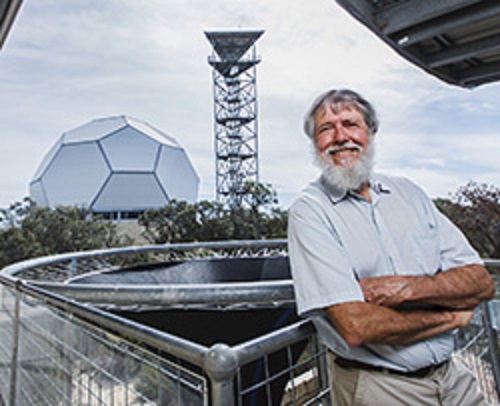
David Blair is a gravitational wave physicist who played a role in the development of the detectors that finally detected gravitational waves in 2015. He co-founded the Gravity Discovery Centre in Western Australia and the Einstein-First education project. He was awarded the Prime Minister's Prize for Science in 2020.
4:25pm
Three Very Small Questions about our Very Big Universe - Dr Claire Lee, CERN Switzerland - Fermilab
The Standard Model of particle physics is the best description that we have of how our universe works. But despite it standing up to every test we have put it through, we know that it is incomplete in some fundamental ways. In this talk, we’ll see how the ATLAS Experiment at the Large Hadron Collider at CERN discovered the Higgs Boson in 2012. We’ll learn about neutrinos, some of the most prolific yet mysterious particles in the universe. We’ll see how all the pieces of the Standard Model puzzle fit together to describe everything we know of in the universe. But is that the end of the story? And if not... what does that mean for our understanding of the universe as a whole?
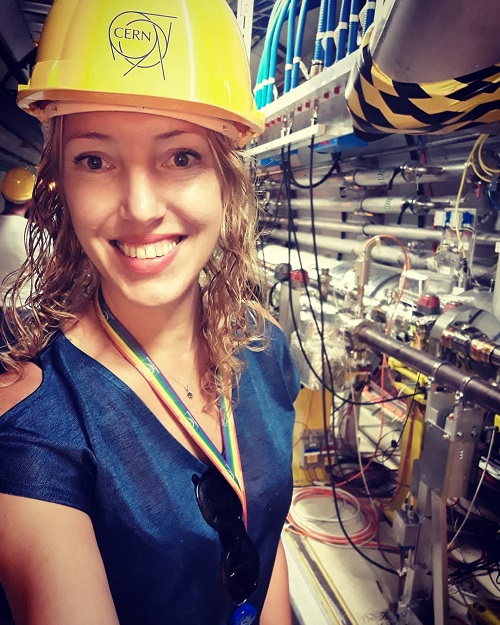
Dr Claire Lee is a South African particle physicist at the U.S. Department of Energy's Fermilab. Claire is a member of the DUNE Collaboration, a neutrino experiment under construction that will detect and study neutrinos produced at Fermilab. She completed her PhD on the ATLAS Experiment, one of the multipurpose experiments at the Large Hadron Collider (LHC) at CERN (European Organization for Nuclear Research), in Geneva Switzerland. Her PhD research focused on improving the measurement of missing transverse momentum in proton-proton collisions in ATLAS. Claire is an experienced public speaker and has been invited to speak around the world at places such as the UNESCO Headquarters in Paris and the UN offices in Geneva, and at events such as TEDx and New Scientist Live. When not doing physics, she enjoys running, snowboarding, scuba diving, and yoga.
2:55pm
Physics Education Research in Australia Discussion
Phys - SuperGroup - Helen Georgiou and Elizabeth Angstmann, University of Wollongong and Simon Crook , The University of Sydney
Physics Education Research (PER) aims to understand how people learn physics and to identify ways to improve educational outcomes for students of physics. In this session, current and former physics education researchers will join participants in a discussion on PER and implications for physics teaching in Australia. Panel members will provide a brief history of PER and its people in Australia, present an overview of current and local research being conducted in PER and discuss implications and opportunities for PER to improve physics instruction.
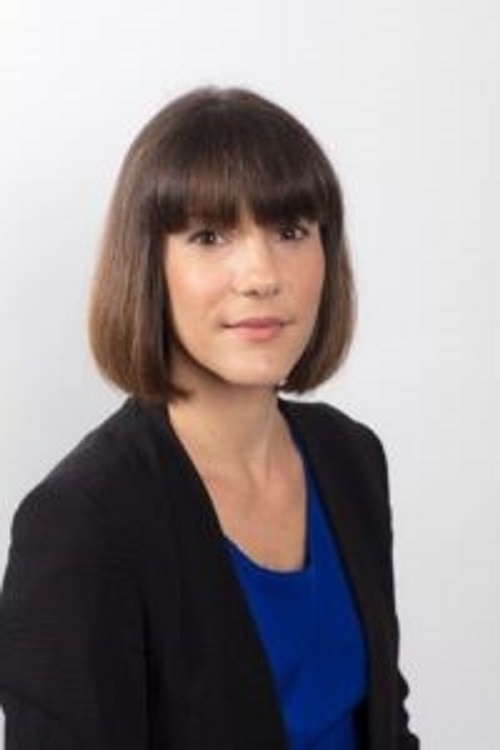
Dr Helen Georgiou is a lecturer in science education and former high school physics teacher. Helen’s research focuses on how improve access to and success in science. Her PhD, from The University of Sydney, focused on student understanding of thermodynamics and is entitled ‘Doing Positive Work: on student understanding of thermodynamics’. A unique element of Helen’s research involves drawing from an epistemological framework known as Legitimation Code Theory to explore the nature of scientific knowledge in various educational contexts. This approach is able to make certain knowledge claims and practices more explicit, reducing the risk of misunderstanding and disengagement in science. Other research interests include diagnosing misconceptions, exploring student-generated digital explanations as assessment, describing creativity in physics and evaluating professional learning opportunities through peer observation (in higher education).
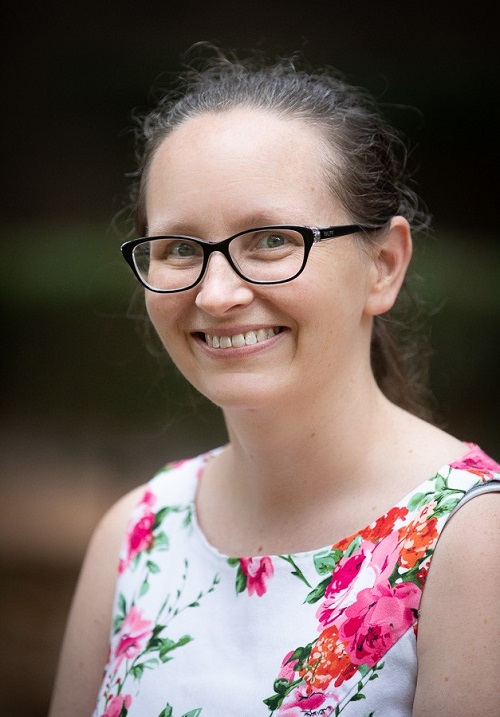
A. Prof. Elizabeth Angstmann, first year director in the school of physics, is responsible for the education of thousands of students each year. Being a trained school teacher, she uses sound pedagogical basis when running first year physics courses, where possible utilising technology in appropriate ways and active learning methods. In 2018 Elizabeth introduced a graduate certificate in physics for science teachers as she is passionate about assisting school teachers to provide the best possible physics experience for their students. Elizabeth is the current Chair of Physics Education Group of the Australian Institute of Physics and co-leads the Physics Education Research for Evidence Centred Teaching (PERfECT) group at UNSW. Her work has been recognised through the award of an Australian Award for University citation in 2018 and the prestigious Australian institute of Physics Education Medal in 2020.
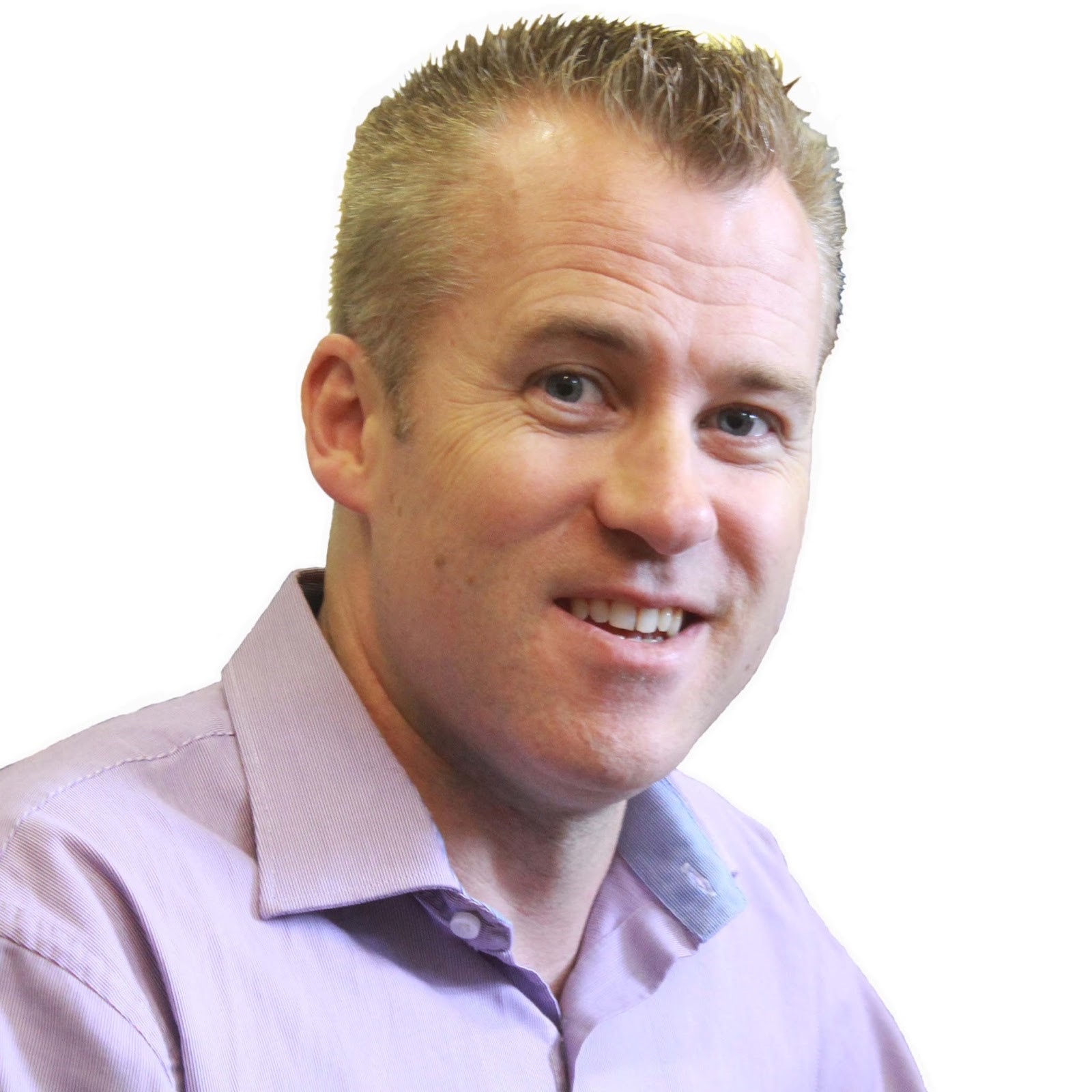 Dr Simon Crook is Director of CrookED Science, a STEM Education consultancy, and Honorary Associate with the Sydney University Physics Education Research (SUPER) group. He completed a part-time PhD at The University of Sydney under Professor Manju Sharma in 2017. Through a thesis by publication, Simon evaluated the impact of 1:1 laptops and the use of simulations on teaching and learning in the sciences. As Honorary Associate, he assists the School of Physics liaise with organisations such as NESA regarding the recent Stage 6 Physics syllabus and the equity of access to Band 6s. With CrookED Science, Simon supports teachers and students in primary and high schools with Science and STEM through in situ and online support and professional development. Simon has been teaching senior Physics since 1994 in the UK and Australia.
Dr Simon Crook is Director of CrookED Science, a STEM Education consultancy, and Honorary Associate with the Sydney University Physics Education Research (SUPER) group. He completed a part-time PhD at The University of Sydney under Professor Manju Sharma in 2017. Through a thesis by publication, Simon evaluated the impact of 1:1 laptops and the use of simulations on teaching and learning in the sciences. As Honorary Associate, he assists the School of Physics liaise with organisations such as NESA regarding the recent Stage 6 Physics syllabus and the equity of access to Band 6s. With CrookED Science, Simon supports teachers and students in primary and high schools with Science and STEM through in situ and online support and professional development. Simon has been teaching senior Physics since 1994 in the UK and Australia.
4:25pm
What research tells us about great physics teaching - Dr Elizabeth Angstmann
In this presentation I will outline some of the core findings from physics educational research about what really makes a difference in classrooms. We will consider strategies that improve student learning gains along with what can be done to address gender disparities in physics. Practical examples of activities that can be implemented in classrooms will be included. I will also give an overview of current activities of our physics education research group, PERfECT, and the Australian Institute of Physics (AIP) Physics Education Group (PEG).
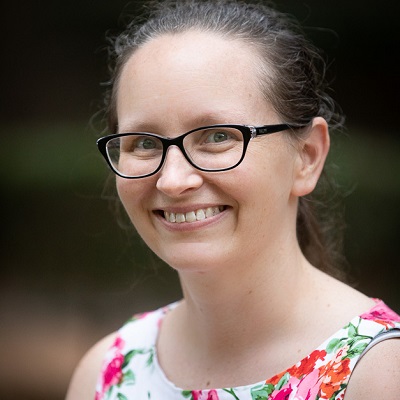 A. Prof. Elizabeth Angstmann, first year director in the school of physics, is responsible for the education of thousands of students each year. Being a trained school teacher, she uses sound pedagogical basis when running first year physics courses, where possible utilising technology in appropriate ways and active learning methods. In 2018 Elizabeth introduced a graduate certificate in physics for science teachers as she is passionate about assisting school teachers to provide the best possible physics experience for their students. Elizabeth is the current Chair of Physics Education Group of the Australian Institute of Physics and co-leads the Physics Education Research for Evidence Centered Practice (PERfECT) group at UNSW. Her work has been recognised through the award of an Australian Award for University citation in 2018 and the prestigious Australian institute of Physics Education Medal in 2020.
A. Prof. Elizabeth Angstmann, first year director in the school of physics, is responsible for the education of thousands of students each year. Being a trained school teacher, she uses sound pedagogical basis when running first year physics courses, where possible utilising technology in appropriate ways and active learning methods. In 2018 Elizabeth introduced a graduate certificate in physics for science teachers as she is passionate about assisting school teachers to provide the best possible physics experience for their students. Elizabeth is the current Chair of Physics Education Group of the Australian Institute of Physics and co-leads the Physics Education Research for Evidence Centered Practice (PERfECT) group at UNSW. Her work has been recognised through the award of an Australian Award for University citation in 2018 and the prestigious Australian institute of Physics Education Medal in 2020.